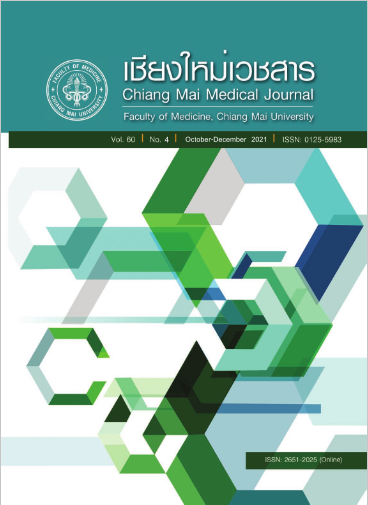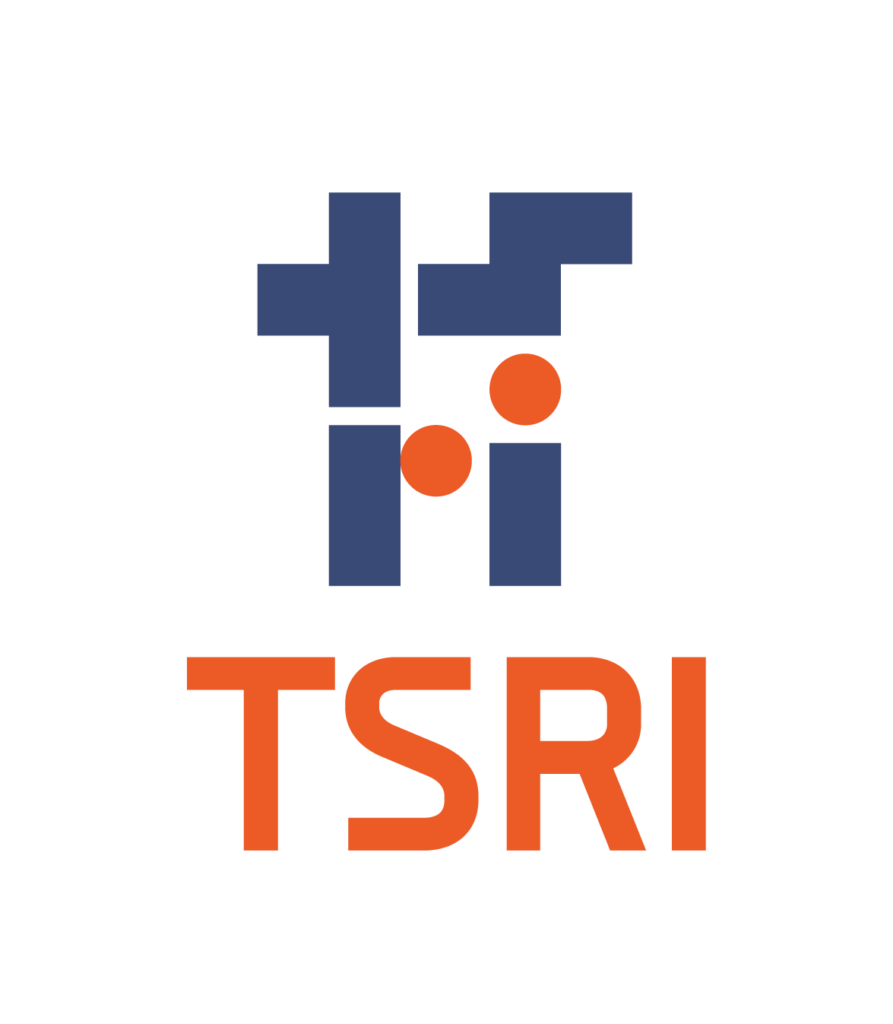การส่งเสริมการจัดการตนเองของบุคคลและครอบครัวในผู้ที่มีภาวะอ้วนลงพุงในชุมชน: กรณีศึกษา
คำสำคัญ:
การจัดการตนเองของบุคคลและครอบครัว, ผู้ที่มีภาวะอ้วนลงพุงในชุมชน, เมตาบอลิกซินโดรม, กรณีศึกษาบทคัดย่อ
วัตถุประสงค์ เพื่อศึกษากระบวนการและผลลัพธ์ของการส่งเสริมการจัดการตนเองของบุคคลและครอบครัวในผู้ที่มีภาวะอ้วนลงพุงในชุมชน
วิธีการ การศึกษาแบบกรณีศึกษา (case study) โดยการส่งเสริมกระบวนการจัดการตนเองของบุคคลและครอบครัวในผู้ที่มีภาวะอ้วนลงพุง ซึ่งใช้ทฤษฎีการจัดการตนเองของบุคคลและครอบครัวของไรอันและซาวิน (2009) ซึ่งประกอบด้วย 3 ด้านคือ 1) ด้านความรู้และความเชื่อในภาวะสุขภาพ 2) ด้านทักษะและความสามารถในการจัดการตนเอง และ 3) ด้านสิ่งอำนวยความสะดวกในสังคม กลุ่มตัวอย่างในการวิจัยประกอบด้วย 4 ครอบครัว เครื่องมือที่ใช้ประกอบด้วย แผนการส่งเสริมการจัดการตนเองของบุคคลและครอบครัว และคู่มือการจัดการตนเองของผู้ที่อ้วนลงพุง วิเคราะห์ข้อมูลโดยใช้สถิติเชิงพรรณนา และวิเคราะห์เปรียบเทียบความเหมือนความต่างในแต่ละกรณีศึกษา
ผลการศึกษา การใช้การส่งเสริมกระบวนการจัดการตนเองของบุคคลและครอบครัวในผู้ที่มีภาวะอ้วนลงพุงในชุมชน พบว่าทุกครอบครัวสามารถจัดการเรื่องอาหาร การออกกำลังกาย และการจัดการความเครียดได้ โดยสมาชิกในครอบครัว เพื่อนร่วมงาน และเพื่อนบ้านมีอิทธิพลต่อการจัดการตนเองของผู้ที่มีภาวะอ้วนลงพุง ผลลัพธ์ที่เกิดขึ้นภายหลังการส่งเสริมกระบวนการจัดการตนเองของบุคคลและครอบครัว พบว่าผู้ที่มีภาวะอ้วนลงพุงทุกรายมีความรู้และความเข้าใจเกี่ยวกับโรคที่ถูกต้อง สามารถจัดการตนเองได้อย่างเหมาะสมและต่อเนื่อง ส่งผลให้มีน้ำหนักตัว ค่าดัชนีมวลกายและเส้นรอบเอวลดลง สำหรับสมาชิกในครอบครัวทุกรายมีการเปลี่ยนแปลงพฤติกรรม แต่มีเพียงหนึ่งรายที่มีน้ำหนักตัวและค่าดัชนีมวลกายลดลง
สรุป การส่งเสริมกระบวนการจัดการตนเองของบุคคลและครอบครัวในผู้ที่มีภาวะอ้วนลงพุงในชุมชนสามารถทำให้เกิดผลลัพธ์ที่ดีต่อผู้ที่มีภาวะอ้วนลงพุง ดังนั้นควรมีนำกระบวนการส่งเสริมการจัดการตนเองของบุคคลและครอบครัวประยุกต์ใช้ในการดูแลผู้ที่มีภาวะอ้วนลงพุงในชุมชนต่อไป
เอกสารอ้างอิง
Phondongnok S, Rattanachaiwong S, Wichai J, Thonrat T. Knowledge of metabolic syndrome. Khon Kaen: Health Promotion Unit. Social Medicine Work Srinagarind Hospital. 2015. (in Thai)
Ranasinghe P, Mathangasinghe Y, Jayawardena R, Hills AP, Misra A. Prevalence and trends of metabolic syndrome among adults in the Asia-pacific region: a systematic review. BMC Public Health. 2017;17:1–9.
Thaman R, Arora G. Metabolic Syndrome: definition and Pathophysiology-the discussion goes on! J Physiol Pharmacol Adv. 2013;3:48-56.
Moore JX, Chaudhary N, Akinyemiju T. Metabolic syndrome prevalence by race/ethnicity and sex in the United States, National Health and Nutrition Examination Survey, 1988–2012. Preventing Chronic Disease. 2017;14:160287.
Li R, Li W, Lun Z, Zhang H, Sun Z, Kanu JS, et al. Prevalence of metabolic syndrome in mainland China: a meta-analysis of published studies. BMC Public Health. 2016;16:1-10.
Khamchata L, Dumrongpakapakorn P, Theeranut A. Metabolic Syndrome : Dangerous signs required management. Srinagarind Medical Journal. 2018;33:386-95. (in Thai)
Ekplakorn V. Report of Thai public health survey by physical examination No. 5, 2014. Nonthaburi: Institute of Public Health System Research. 2014. [cited 2018 March 10]. Available from: https://www.hsri.or.th/researcher/research/new-release/detail/7711 (in thai)
Lampang Provincial Public Health Office. Nutrition Standards Report Group. 2018 [cited 2020 May 20]. Available from: https://lpg.hdc.moph.go.th/hdc/reports/report.php?source=kpi/kpi.php&cat_id=46522b5bd1e06d24a5bd81917257a93c&id=a75e43f7e044704ec9a993266d3f6704 (in thai)
Mottillo S, Filion KB, Genest J, Joseph L, Pilote L, Poirier P, et al. The metabolic syndrome and cardiovascular risk: A systematic review and meta-analysis. J Am Coll Cardiol. 2010;56:1113-32.
Reyes SJ, Pak T, Moon TS. Metabolic syndrome–evidence-based strategies for patient optimization. Best Pract Res Clin Anaesthesiol. 2020;34:131-40.
Institute of Medical Technology Research and Evaluation, Department of Medicine, Ministry of Public Health. Practices for the prevention and treatment of obesity. Bangkok: The Agricultural Cooperative Federation of Thailand. (2010). (in Thai)
Singh AK, Kari JA. Metabolic syndrome and chronic kidney disease. Curr Opin Nephrol Hypertens. 2013;22:198-203.
O’Neill S, O’Driscoll L. Metabolic syndrome: A closer look at the growing epidemic and its associated pathologies. Obes Rev. 2015;16:1–12.
Bitzur R, Brenner R, Maor E, Antebi M, Ziv-Baran T, Segev S, et al. Metabolic syndrome, obesity, and the risk of cancer development. Eur J Intern Med. 2016;34:89-93.
Grundy SM. Metabolic syndrome update. Trends Cardiovasc Med. 2016;26:364-73.
Cuschieri S, Vassallo J, Calleja N, Pace N, Mamo J. The effect of age, gender, TG/HDL-C ratio and behavioral lifestyles on the metabolic syndrome in the high risk Mediterranean Island population of Malta. Diabetes Metab Syndr Clin Res Rev. 2017;11:S321-7.
Chakraborty S, Roy S, Rahaman M. Epidemiological predictors of metabolic syndrome in urban West Bengal, India. J Family Med Prim Care. 2015;4:535-8.
Panagiotakos DB, Pitsavos C, Skoumas Y, Stefanadis C. The association between food patterns and the metabolic syndrome using principal components analysis: the ATTICA Study. J Am Diet Assoc. 2007;107:979–87.
Dunkley AJ, Charles K, Gray LJ, Camosso-Stefinovic J, Davies MJ, Khunti K. Effectiveness of interventions for reducing diabetes and cardiovascular disease risk in people with metabolic syndrome: Systematic review and mixed treatment comparison meta-analysis. Diabetes, Obes Metab. 2012;14:616-25.
Ostman C, Smart NA, Morcos D, Duller A, Ridley W, Jewiss D. The effect of exercise training on clinical outcomes in patients with the metabolic syndrome: a systematic review and meta-analysis. Cardiovasc Diabetol. 2017;16:1-11.
Chanapa P, Kijkuokool P. Stress and the metabolic syndrome. Songklanagarind Medical Journal. 2013;31:253-260. (in Thai)
Wattana C. Self-management support: strategies for promoting disease control. Journal of Phrapokklao Nursing College. 2015;26:117-127. (in Thai)
Praphasil O, Wattana C, Tharavanij T. Effects of promoting self-efficacy in a Self-Management Program on self-management behaviors, obesity, cardiovascular disease risk, and regression of metabolic syndrome. Nursing Journal. 2013;40:34-48. (in Thai)
Sanee A. Self management program in chronic diseases. Journal of The Royal Thai Army Nurses. 2014; 15:129-34. (in Thai)
Ryan P, Sawin KJ. The individual and family self-management theory: background and perspectives on context, process, and outcomes. Nurs Outlook. 2009;57:217-225.e6.
Jantima P, Sritaratikul S. The effect of promoting self-management for health behavior modification of metabolic syndrome risk group. Nursing Journal. 2017;44:162-171. (in Thai)
Sujamnong S, Therawiwat M, Imamee N. Factors related to self-management of hypertension patients, Taladkwan District Health Promoting Hospital, Nonthaburi Province. Journal of Health and Nursing Research (Journal of Boromarajonani College of Nursing, Bangkok. 2013;29:20-30. (in Thai)
Seesawang J, Thongtang P. Factors associated with self-management ability among older adults with hypertension in Asia: a systematic review of qualitative studies. Nursing Science Journal of Thailand. 2019;37:86-107. (in Thai)
Ounprom S, Oba N, Vichitkeaw N. Effects of Health Education Program on Health Promotion behaviors among pre-diabetes adults. Journal of Nursing Science Naresuan University. 2007;1:100-11. (in Thai)
Aungwattana S, Subpaiboongid P. Primary health services and community nursing processes. In: Aungwattana S, Subpaiboongid P, editor. Community Nursing. Chiang Mai: Klong Chang Printing; 2012. p. 31-42. (in Thai)
Tingsuikul Buakaew W, Kangchai W, Jullamate P. Impact of Self-Management Promoting Program on Obese monks’ consumption Behaviors and body mass indices. Thai Journal of Nursing Council. 2014;27:92-108. (in Thai)
Dragusha G, Elezi A, Dragusha S, Gorani D, Begolli L. Treatment benefits on metabolic syndrome with diet and physical activity. Bosn J Basic Med Sci. 2010;10:169-76.
ดาวน์โหลด
เผยแพร่แล้ว
รูปแบบการอ้างอิง
ฉบับ
ประเภทบทความ
สัญญาอนุญาต

อนุญาตภายใต้เงื่อนไข Creative Commons Attribution-NonCommercial-NoDerivatives 4.0 International License.










